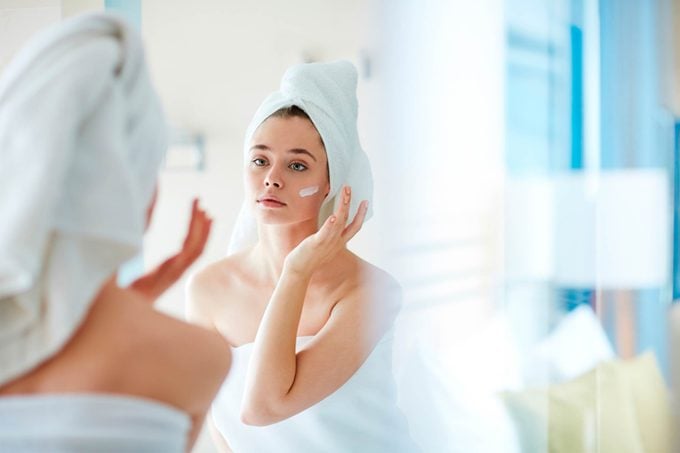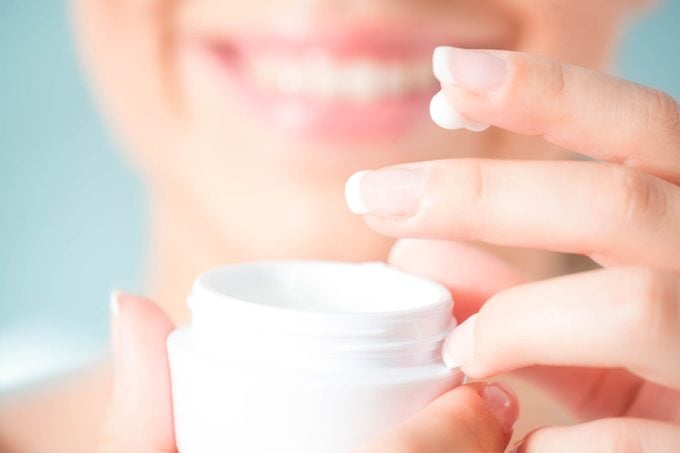The Retinoid Rule Dermatologists Are Urging Everyone to Follow
Updated: May 11, 2020
Dermatologists discuss how to use retinoids, like a retinol cream, and the importance of sunscreen to protect your skin health
Retinoids, a form of vitamin A, can feel like a miracle if you’ve ever had to deal with acne, anti-aging, or hyperpigmentation. But if you use them year-round, you need to be extra careful with your sunscreen. That’s because retinoids like retinoic acid, retinol, and other popular chemical exfoliants gently scrub away dead skin cells, which leaves skin more open to potential sun damage.
To learn how to safely use retinoids (like retinol creams), we spoke with top dermatologists who explain what it does to the skin. Plus, they also reveal the biggest culprits that can make your skin more vulnerable to sun damage.

What you need to know about AHAs and BHAs
You know all those alpha hydroxy acid (AHA) and beta hydroxy acid (BHA) cleansers, toners, and moisturizers you have in your bathroom vanity? They are actually, in part, responsible for your vulnerability to sun damage. According to Julie Russak, MD, a New York City-based dermatologist, AHAs and BHAs, such as glycolic, lactic, and salicylic acids, exfoliate skin, leaving it more susceptible to sun damage. “These retinoids are commonly used in anti-aging, skin-brightening, and acne-fighting products,” she says. “But when used consistently, retinoids help keep your skin clear, even out skin tone, reverse sun damage, and prevent premature aging. Some products, like Skinbetter Science, actually combine a retinoid with lactic acid, resulting in less irritation.”
Retinoids and photoaging skin
Retinoids help prevent premature skin aging by minimizing fine lines and wrinkles through boosting the production of collagen. Interestingly, a 2015 study in the Journal of Cosmetic Dermatology suggests retinol in combination with a derivative of jasmonic acid, is an effective treatment with minimal side effects in treating photoaged skin, or aging caused by the sun. Topical tretinoin, also a retinoid, is the “gold standard” treatment for photoaging.
According to the study researchers, it’s also effective, but less well-tolerated than the combined retinol treatment. Common side effects of both treatments range from dryness to irritation. Therefore, experts recommend the use of retinol creams every other day. However, you should consult your doctor to discuss the regimen that’s best for your skin and individual needs.

When to apply a retinol cream
So, what’s the most important part of using retinol cream in the summer? The time of day you use it. “Retin products are typically used at night because the sun breaks them down, making them ineffective,” says Ryan Neinstein, MD, a plastic surgeon and founder of Neinstein Plastic Surgery in New York City. “And the overall effect of the retinol is to thin the skin, which makes it more sensitive to the rays of the sun.”
Dr. Neinstein suggests patients use their retinol cream and retinoid products at night. He strongly advises to “avoid using them during the day when sun exposure is expected.” Dr. Neinstein adds, “Most importantly, always use a minimum of SPF 30 over the retinoid-treated areas.”












